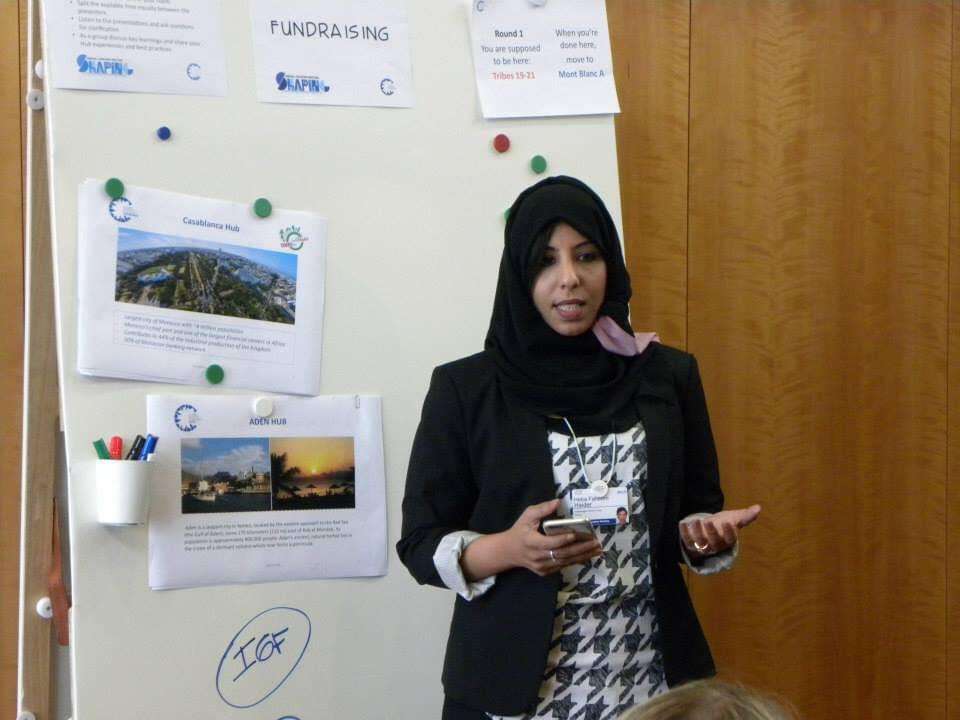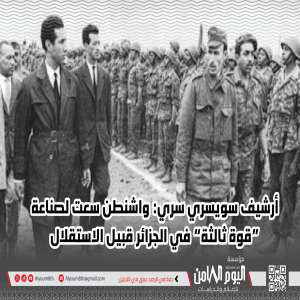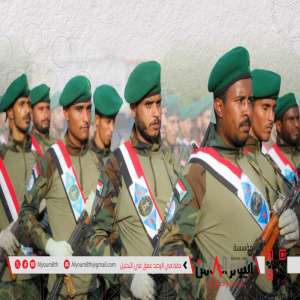Women in Decision-Making Centers
A Struggle Between UN Resolution 1325 and Political Crises
"Women in Aden have played a pivotal role in their community for decades, being among the first in the Arab region to engage in education, public work, and even politics. In the 1950s and 1960s, Aden witnessed women's participation in national liberation movements, where they organized mass demonstrations and campaigns demanding their rights. This laid a solid foundation for women's rights and their status in the city."

Heba Faheem Haider Economic researcher at Alyoum8th Foundation for Media and Studies And Member of the World Economic Forum

Over the past decade, the city of Aden has experienced unprecedented political and security upheavals that have impacted all aspects of life. Despite these challenges, women have stood resilient, demonstrating remarkable determination to play a central role in the political arena. Drawing strength from a long history of women's struggle, and supported by UN Resolution 1325, which emphasizes women's role in peace and security, women in Aden have grown stronger and more engaged in political affairs, making their presence in decision-making centers essential for achieving peace and development.
Women in Aden have played a pivotal role in their community for decades, being among the first in the Arab region to engage in education, public work, and even politics. In the 1950s and 1960s, Aden witnessed women's participation in national liberation movements, where they organized mass demonstrations and campaigns demanding their rights. This laid a solid foundation for women's rights and their status in the city. Over time, these achievements have continued, with women becoming role models in education, social work, and political activism.
With the outbreak of political crises in Yemen over the past ten years, women in Aden have faced enormous challenges that demanded greater awareness and involvement in public affairs. Wars and conflicts have fragmented societal structures, increased poverty, and unemployment, pushing women to confront these crises by providing humanitarian aid, defending the rights of families and children, and working toward local peace. This increased engagement has heightened Adeni women’s awareness of political and public issues, transforming their roles from charity or social work to active participation in political discussions and decision-making platforms. This growing political awareness has been a direct result of their interaction with successive crises, enabling them to develop strategies for civic and political work and contribute new perspectives that combine strength and resilience.
Amid these crises, UN Resolution 1325 has played a significant role in supporting women's efforts in Aden. This resolution, which highlights the importance of women's participation in peace and security, has provided Adeni women with more legitimacy in the political and social arenas. Women in the city have leveraged this resolution to expand their participation across various leadership levels, including local councils, international organizations, and community initiatives. However, there remains a critical need to intensify efforts to empower women for serious involvement in decision-making and to take on leadership positions. Such roles would not only enable women to participate in decision-making but also to implement decisions and recommendations effectively, especially in senior roles.
The efforts of women, supported by international organizations and local institutions, should have a more tangible impact. Women in Aden have adhered to the principles of the resolution, fostering a sense of entitlement and raising awareness about it, aiming to turn it into a concrete reality. They have engaged in initiatives to resolve community disputes, support reconciliation among conflicting local parties, and contribute to economic and social recovery plans. Experience has shown that women often propose solutions aimed at directly improving the lives of affected families and communities, reflecting their deep understanding of societal needs.
Today, women in Aden are playing a central role in restoring community stability through initiatives focused on enhancing community security and providing essential services such as education, healthcare, and support for small enterprises. Women in decision-making centers are working to develop policies that cater to everyone's interests and offer protection to women and children affected by conflicts, drawing inspiration from the principles of UN Resolution 1325 and their decades-long struggle.
The growing adoption of programs advocating for women's participation in decision-making is likely to strengthen their presence in leadership positions and increase opportunities for societal change. Awareness of the importance of integrating women across various fields, from politics to the economy, is on the rise. Female leaders are emerging as symbols of resilience and progress, empowering and training other women to engage in political and civic work, thereby becoming an integral part of the decision-making process.
Despite the successes women have achieved in our society, significant challenges persist. These include the inefficiency of some local institutions in implementing programs effectively, the lack of scrutiny by international organizations over the accuracy of reports and final indicators used to measure program success, and societal traditions that restrict women's roles. Political pressures also hinder the implementation of sustainable policies, and the scarcity of financial and technical resources presents another obstacle to achieving greater results. Addressing these issues requires continued local and international support to sustain and expand these efforts.
In conclusion, a message of gratitude goes out to the women who, over a decade of crises, have proven their ability to make significant contributions to peace and stability. Drawing inspiration from their history of struggle and international frameworks like UN Resolution 1325, their presence in decision-making centers brings a new dimension of hope for a brighter future for this promising city. It reaffirms that including women in crisis management and policy-making is an indispensable step toward achieving lasting peace and development.



